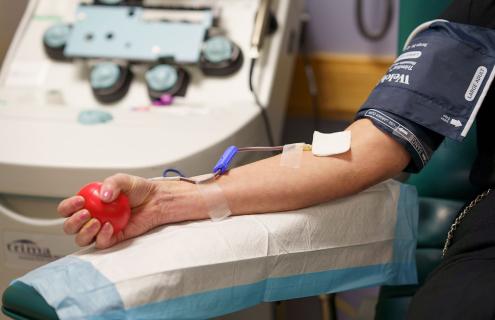
If you’ve been told you couldn’t donate blood because of certain rules, updated guidance from the Food and Drug Administration (FDA) may now allow you to donate. This includes questions related to blood exposures, HIV/AIDS risk factors and travel.
The following guidance changed from having to wait 1 year, to only 3 months to donate:
- Tattoos and piercings.
- Male-to-male sexual contact.
- Blood transfusion.
- Accidental needle stick.
- Travel to a malaria endemic area.
In addition, the FDA changed the list of European countries where people who have traveled for a long period of time (3 months or more), would never be able to donate, and if you have spent time on a military base in Europe you can now donate. They also reduced waiting times for donors who have certain cancers or medical conditions, such as Melanoma, which is now only one year.
In May 2022, the FDA also changed the recommendations for blood donors who had a geographic risk of exposure to bovine spongiform encephalopathy (known commonly as “Mad Cow Disease”) for time spent in the United Kingdom (U.K) from 1980-1996 and for time spent in France and Ireland from 1980-2001, or receiving a blood transfusion in the U.K., France or Ireland from 1980-present.
The FDA recommends re-screening because of the recent changes. You will still need to meet all other requirements.
Blood Donors Urgently Needed
Donors of all blood types are needed. Blood donations made through the Blood Donor Program are used for patients at Dartmouth Hitchcock Medical Center and our Dartmouth Health system members.
Be a Summer Blood Donor
Did you know the need for blood increases greatly during the summer months? We are still experiencing blood shortages and donations traditionally drop off between Memorial Day and Labor Day.
Just a few minutes out of your day can save a life.
Please contact the American Red Cross site to determine if you are eligible, and to book an appointment.